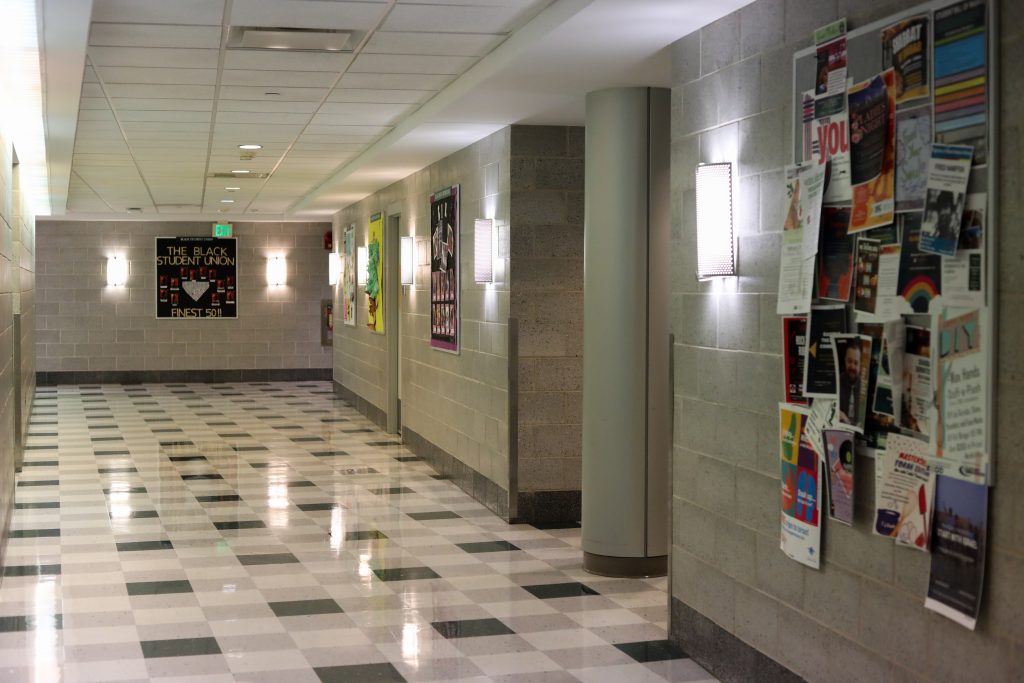Student Association (SA) groups may see a change in how their spaces in the University Union are distributed.
During an SA Congress meeting on Jan. 28, Executive Vice President Michelle Dao outlined her plans to start up an SA committee that would be in charge of overseeing the yearly space allocation process to more than 300 student organizations. According to Dao’s report in the SA Congress minutes, the goal of the committee will be to decide who the space goes to and to revamp the space allocation process to be more fair and equitable.
“There’s a lot of spaces upstairs where people have violations, so it is also a matter of encouraging organizations to clear up the spaces and to increase traction upstairs so that it will be seen as a used space instead of a storage space,” Dao said in her report.
Bradley Goldman, president of Hillel, an SA Congress representative for off-campus students and a senior majoring in accounting, said he was ambivalent about the possible changes.
“I don’t really have an opinion either which way, but it’s necessary for an organization as large as the Student Association to reanalyze itself,” Goldman said. “It’s trying to make sure that is the most fair because there are over 300 different student groups.”
However, Goldman said he hoped the change would not affect Hillel.
“We are probably one of the most active groups in terms of lounge usage,” Goldman said. “People are always in [and] out, it’s really a hub for so many students. I can’t imagine Hillel without that space. But at the end of the day, it’s up to the discretion of the Student Association, but I don’t see Hillel losing that space.”
Space is allocated to groups who score the highest on a rubric that will be graded based on how well the organization has complied with SA policy, how the group would make use of its space, whether or not they have a large membership and whether or not they have good and consistent governance, as stated in the SA Management Policy handbook. In an email, Dao wrote that space is in high demand, and the new rubric and committee will help ensure it is being used to its maximum potential.
“Space allocation is a privilege that organizations apply for,” Dao wrote. “By following the proper procedure and creating a fair and equitable rubric with the committee, the resulting space allocation decisions should be reflective of a more fair and equitable outcome in addition to maximizing our capacity to help our student groups.”
Yasmine Nartey, vice president of the African Student Organization and a junior majoring in philosophy, politics and law, said student organizations should be made aware of how they will be evaluated for office space.
“I guess it would be nice to know the criteria in reallocation,” Nartey said. “Like, who’s to say or who’s to judge on how well we use the room.”
According to the meeting minutes, the committee is still in the planning stage and it will assess the office spaces and basement storage cages in the University Union and storage space in Old Rafuse Hall of Old Dickinson Community through inspections. Dao said organizations will be contacted after the first committee meeting, which has yet to be scheduled.
Dao’s plans for the committee include ensuring that office space is used actively and not as storage space. But Nancy Huang, historian of the Astronomy Club and a junior majoring in physics, said it’s difficult for SA-chartered groups to find storage space, and the committee should not penalize groups for using their offices to store gear and supplies. According to Huang, her club has struggled to find a place to store their telescopes.
“I think it’s much easier to reserve a room than get storage space, but meeting space can happen anywhere,” Huang said. “Last year, most of us lived on campus and there’s just not enough space in a dorm room you have to share with other people. Now some of us live off campus but then we have to drive back-and-forth to bring all our telescopes, all our materials to campus. That’s just a lot of labor whereas we could just have it in the Union where we could bring it out easily because a lot of our events are in the Union.”
According to Huang, when she went to the SA to request a space to store her group’s equipment, she was told there was no space available.
“They told me to ask another club if we could share their space, but other clubs need their own space too,” Huang said.
A previous version of this article stated that the space allocation committee is a new addition to the Student Association’s yearly allocation process. It is not new, but rather a group that is formed each year for the task.



